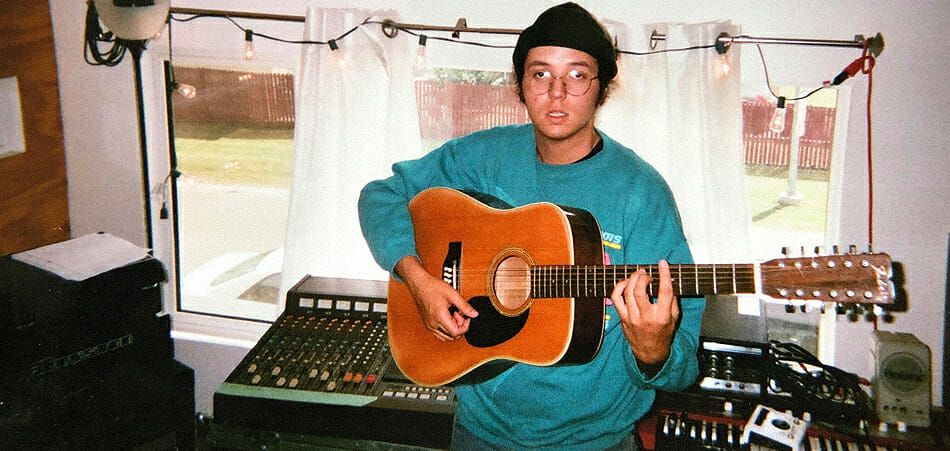
Fiona Apple's 'Fetch the Bolt Cutters' Is a Triumphant Statement of Self-Discovery and Solidarity
Up until now, has dissected the intricacies of pain so well that it seemed silly to ask her for anything else. Her 1998 debut album, Tidal, turned heads for placing a young woman’s trauma against a lush piano backdrop, and thereby set in motion the Sad Girl archetype that reverberates through pop to this day. In the midst of praising her art, some critics mistook the 18-year-old’s woeful honesty for weakness. Her precocity was turned against her, and everything became a target for scrutiny or ridicule: her weight, her appearance, her album titles, her emotionalism, her ability to sniff out bullshit. In these past two decades, Apple’s version of taking charge of this narrative has been to retreat, returning every six, seven, eight years with a new collection of songs, ready for the next wave of devoted acolytes to find solace and catharsis in her work.
For longtime fans who are expectantly, perhaps giddily, steeling themselves for another brutal LP from Apple, Fetch the Bolt Cutters will not disappoint. Released with little warning nearly a decade after 2012’s The Idler Wheel…, the album sees the now-42-year-old songwriter proving that she’s still more than capable of telling off partners, detractors, and others who have done her wrong, all while picking apart the inner workings of her frantic mind. But what sets Bolt Cutters apart from its predecessors is that, for the first time, the scales tip more toward resilience than agony. “I thought that being blacklisted would be grist for the mill, until I realized I’m still here,” Apple admits on the title track — a line that she improvised and kept around because, as she told The New Yorker, she thought it was embarrassing. Bolt Cutters is what happens when those outside influences that have crept behind her for her whole life are buried away, leaving a person to figure out what confidence or self-worth can be found away from the spotlight.
She’s not making the journey alone. This is Apple’s most communal album yet, right down to the recording and production that took place almost entirely at her house in Venice Beach, California. On Idler Wheel…, Apple had experimented with translating the vaudeville flourishes of her earlier work into found-sound recordings: a rip of paper here, a stomping boot through gravel there. On Bolt Cutters, she enlists a small backing band — guitarist David Garza, bassist Sebastian Steinberg, and drummer Amy Aileen Wood — with much of the album stemming from “jam sessions” in which all four musicians would bang on household objects. “She wanted to start from the ground,” Garza has said of the recording process. “For her, the ground is rhythm.”
That percussive approach to the album keeps the potential chaos afloat — you remember every drum beat on this record — and each musical decision feels as sharp and precise as Apple’s lyrics, from the gospel harmonies that chant over triplet beats on “Relay,” to the invigorating dog barks and cat meows that punctuate “Fetch the Bolt Cutters,” to the ominous, alien hum that opens “Newspaper.” Multiple tracks will heighten suddenly into a roaring climax before fading out into a quiet interlude pieced together from outtakes, where you can hear guitar-noodling and ad-libs in the background. Amid the cymbal crashes and booms during “On I Go,” Apple messes up the repeated hook and mutters, “Aw, fuck, shit,” choosing to leave her momentary snafu in the final cut. These sounds and voices come and go like bit players, taking up space and residence in Apple’s house before going on their way.
Apple once sang beautifully about her plight as the “other woman” in an affair, but now she widens the circle to all parties involved: the exes, the future girlfriends, the women who will never meet or become friends but are inextricably bound by their circumstances. On “Shameika,” Apple recalls how in the midst of her anxious, bullied years in middle school, a girl she wasn’t especially close with told her she “had potential.” The song flits back and forth between thunderous piano and a steady, sparse chorus, capturing how the encouraging words of a peer can stop a preteen’s world in its tracks, even into adulthood. On the flipside, Apple alludes to these same insecurities weighing her down early on in her career: On the title track, she recalls, “I grew up in the shoes they told me I could fill.… A girl could roll her eyes at me and kill,” and, “Those It girls hit the ground, comparing the way I was to the way she was.”
True to any discussion of female relationships and shared trauma, Apple’s transitions between these threads are purposely jarring and unpredictable. The vengeful, spiraling “Newspaper” sees Apple empathizing with a woman who has suffered abuse from the same man as she has, to the point where she feels a bizarre love for this stranger. “I wonder what lies he’s telling you about me, to make sure that we’ll never be friends!” Apple wails, pleading in a one-sided conversation. She immediately follows this with “Ladies,” a clever and at times hilarious jaunt set to a woozy, slow-dance tempo. Addressing her old flame’s “revolving door” of new girlfriends, Apple envisions herself leaving behind material possessions and other baggage for them to find, including a dress that “belonged to the ex-wife of another ex of mine.” (“Don’t get rid of it! You look good in it.”) For die-hard Fiona Apple fans, the newfound levity in her voice goes beyond reassuring; at this grand of a scale, it’s uncharted territory for Apple, and a sign of maturity for an artist already considered to be well beyond her years.
One gets the sense that after all this time, Apple finally knows what, or who, she’s really fighting for. Album opener “I Want You to Love Me” could be called a spiritual successor of “To Your Love,” from 1999’s When the Pawn…, only instead of targeting her critics, Apple pens a rallying cry for anyone who’s grasped at meaning in her words, depicting the relationship as a two-way street. “And I know that you know that you’ve got the potential to pick me up,” she sings, her voice ragged. “And I want you to use it, blast the music, bang it, bite it, bruise it.” Elsewhere, in the transition from “Relay” to “Rack of His,” Apple’s wispy falsetto appears in an iPhone recording, recalling how she used to walk to a Ferris wheel every day “just to throw my anger out the door.” Like Björk throwing things off her cliff, Apple has created a way to relive her rage without resorting to destruction.
The retrospection on Fetch the Bolt Cutters is not without its resentment, or leftover bitterness. But it cements those feelings as tools for solidarity, sisterhood, and self-discovery. Apple has never sounded more sure of herself, and that alone is cause for celebration. “I spread like strawberries,” she bellows on “Heavy Balloon.” “I climb like peas and beans.” It calls to mind the cover of a different album of hers, 2005’s Extraordinary Machine. That release featured a close-up of a pea pod, its individual seeds nestled closely together, an immeasurable distance from the blurry ground below.



